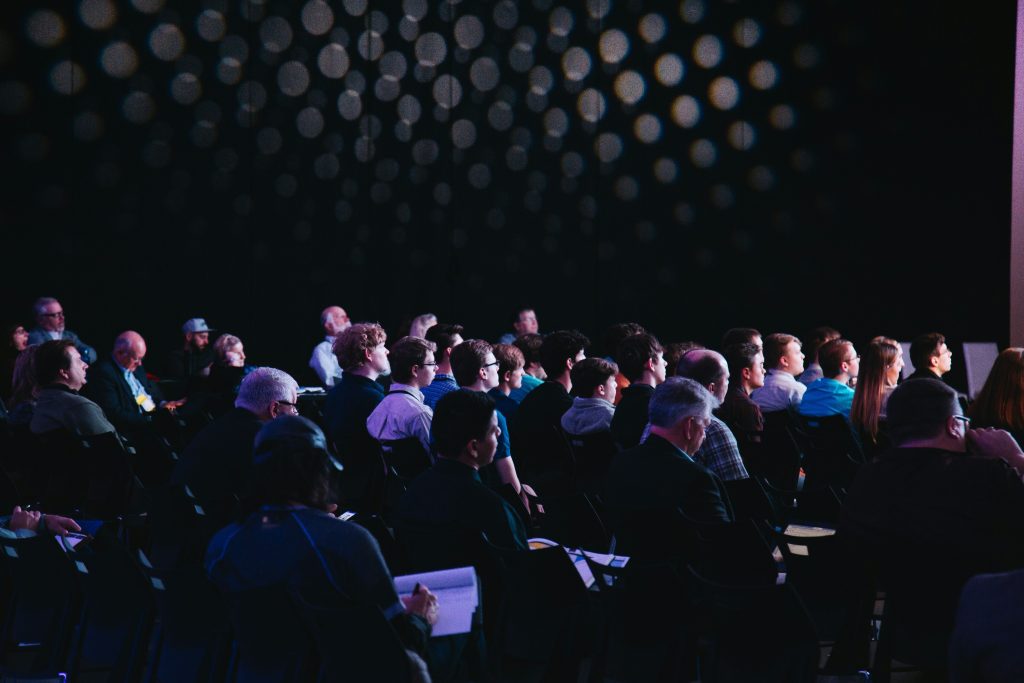By Katherine Marshall, Vice President, G20 Interfaith Forum
Katherine Marshall delivered a presentation at the National Seminar on Cross Cultural Religious Literacy: Religion and Law at Universitas Pancasila, Jakarta. The event was organized in collaboration with the Leimena Institute and the Ministry of Foreign Affairs, Indonesia. Marshall, drawing from her extensive experience in international development and religious engagement, shared insights on the complexities of bridging religious and developmental worlds, and the importance of strategic religious engagement in addressing global challenges.
– – –

It is a pleasure and a privilege to be here today, at the Pancasila University Law Faculty. We hope for a lively exchange and much learning on our part. A special thanks to the students and faculty who have devoted their Friday morning to this exchange.
Let me begin with a brief background on my career. My focus over five decades has been and still is on international development, with the conviction that we live in an extraordinary time where, as no people have ever had before, we have the possibility of achieving a dream: that every child that is born has the \opportunity to fulfill their potential, with freedom and creative options. I worked for many years in the World Bank. My first exposures to Indonesia, at a time when many of you were not yet born, was during the East Asia financial and economic crisis, 1997-9. A memory that is very much with me was a very ambitious mission at a difficult time, to deal with KKN (corruption, collusion, and nepotism), a crisis that exploded at that time both for the World Bank and Indonesia. The World Bank was very much involved in very fundamental questions about the meaning of ethics and where the society was going. But a very different life chapter began as the president of the World Bank was exploring how to bridge wide gaps between development and religion, with some senior world leaders. I was asked to help out temporarily. But now, 25 years later, that is still my focus.
I will focus here on issues I have confronted on that journey. Working on religion at first sounded very obvious, rather bland. After all, 84% of the world’s population has some religious affiliation, so it makes no sense at all that the worlds of religion and development, in Indonesia and the World Bank, in the United Nations and everywhere else, were de facto widely separated. But the idea of building bridges, which seemed so obvious, is in fact a very complex. Thus the topics that we are discussing today come into a category that many of us call “wicked”: very difficult, complex issues which people often hesitate even to discuss. There is a saying in my country and my society that you do not talk about religion or politics at the dinner table, because people will become angry or emotional, so it is very difficult to make any real progress. I have to say that we have found that challenge to be a very real. In the World Bank and many other institutions, it has been systematically difficult to bridge the gulfs.
Strategic religious engagement is a concept and term that we use increasingly to refer to the bridging process we seek. “Strategic” contrasts to unstrategic. So, what is unstrategic? We are concerned about approaches that are largely without a real intellectual foundation, piecemeal, stop-start, with some hesitation, based on partial or distorted preconceptions, etcetera. We need to start with the challenge that so much religious engagement lacks clear strategies. That is one way in which Indonesia’s specific experience with CCRL [Cross cultural religious literacy] offers real light, a real area of potential hope.
The G20 Interfaith Forum has worked for a decade to bring religious experience to global agendas, notably through the G20 Summits and processes around the G20. We begin with concern that if religious communities are not at the policy tables, they are ignored or, worse, become the subjects of action without involvement (“on the menu”, we say). Religious communities have not been at the table for the G7 and the G20 and in many parts of the United Nations. In order to bring that experience to policy processes, you need to highlight some common strands in the fiercely complex religious world. One such strand is the care for the vulnerable, to “leave no one behind”, a basic principle of human development that links . to the Catholic Church teaching about integral human development. We see this area as critical.
A second area that is a sharp focus this year is managing diversity and achieving social cohesion across many societies. That is why we are so supportive of Indonesia’s CCRL conference.
The challenges can be seen as a wicked problem, with many interlinked parts. Social diversity (cultural, religious, ethnic, etc) is paradoxical. In theory, there is no question that diversity is a good thing—biology, diversity in food and menus for example, enrich life. Social diversity enhances creativity and dynamic change. Diverse societies have great strengths and resilience. But diversity is not easy to manage, especially in the short term. Thus the example of Indonesia stands out, with its very self-conscious, deliberate effort to promote unity and diversity, to deal with the challenges of diversity. Such examples, alongside others like Singapore’s focus on inclusive societies, offer practical examples.
Managing diversity is an area where religious communities can help the leaders of the G20 nations as they come together, by thinking through and looking at the most positive models of ways in which societies are creatively dealing with diversity. Here I would add a small caveat. We heard yesterday, where people were speaking frankly under Chatham House rules, off the record, that you need to be careful; these are not trivial problems, and these are not bland statements. They are not slogans. Managing very diverse societies, religiously, ethnically, culturally, language wise, is difficult. In Sri Lanka, for example, tensions around diversity have led to killings of hundreds of thousands of people.
A second wicked problem that every society is dealing with now is what we call polarization. Brett Scharffs [in his previous talk] referred to different kinds of polarization. The accentuation and acceleration of polarization, fueled by social media and misinformation, deliberate misunderstandings, is a global phenomenon. In polarized societies, having conversations about difficult issues, about wicked problems, seems to be more difficult today than it ever has been. This issue also confronts the G20 leaders, indeed everyone, from the family all the way to a nation to the global arena. That’s problem number 2. Finding ways to spur curiosity, to open ways in which you can have that kind of honest conversation, is vitally important.
The third issue (and these are all related) is the problem of extremism, and particularly extremism that leads to violence. The line between extremism that is not violent, that does not incite violence, and other forms of extremism is a very tricky one, that the UN Human Rights Council, for example, is struggling with. But many countries, including Indonesia, have very specific problems with certain kinds of extremism. A term that is used quite often –in Morocco, for example, and other countries, is trying to find ways to inoculate societies against the sort of evil virus of extremist views.
And that takes us to another dilemma: what we want is openness, curiosity, etcetera, and a third way what people sometimes describe as moderation. Yet there are doubts and caveats about moderation. Because in a way moderation sounds as if it’s tepid and boring. I heard Madeleine Albright, when she was US Secretary of State, say that what we need are passionate moderates. Finding ways to think about and to define moderation that is deep deeply held, that reflects deep values, is easier said than done.
These three issues are very much related: the question of diversity, which is a virtue in the long run but difficult in the short term, dealing with the contemporary issues of the shocking polarization of societies, and third, the problems of extremism linked to violence and its uncomfortable companion, moderation.

That takes take us to what we all know is needed but which is so difficult in so many societies: how can you assure at least a minimum of religious literacy: where diplomats, judges, school superintendents, teachers, know and understand enough about the religious landscape that they can be, as we would call it, strategic. So that they can be effective. That is where we have found CCRL and some other Indonesian models, obviously starting with Pancasila and with Indonesia’s history of confronting these complexities so helpful and inspiring. The experience highlights both paths and dilemmas, For example, when teaching religion, how do you distinguish teaching religion by religion, for religion, and about religion, in practical and sensitive ways? How do you distinguish them in ways that encourage the conversation within a global context like the G20 or the G7 or the United Nations, that are meaningful to students everywhere? How do we do this in ways that make sense and that are helpful and useful? How might the experience of Indonesia or Bangladesh apply at a global level, to open a conversation on a difficult subject that is vitally important, for the Sustainable Development Goals, for peace, for prosperity, for dealing with the climate issues, for dealing with any one of the many wicked problems that we face.
If we don’t have the foundation of a basic literacy that allows a conversation and an engagement, it’s very difficult to see the way forward. That is why we see such promise and take such inspiration from being part of the conversation with you here.
– – –
Professor Katherine Marshall is a senior fellow at the Berkley Center for Religion, Peace, and World Affairs at Georgetown University. She serves as the vice president of the G20 Interfaith Association and executive director of the World Faiths Development Dialogue, and worked at the World Bank from 1971 to 2006, tackling development issues in the world’s poorest countries.


